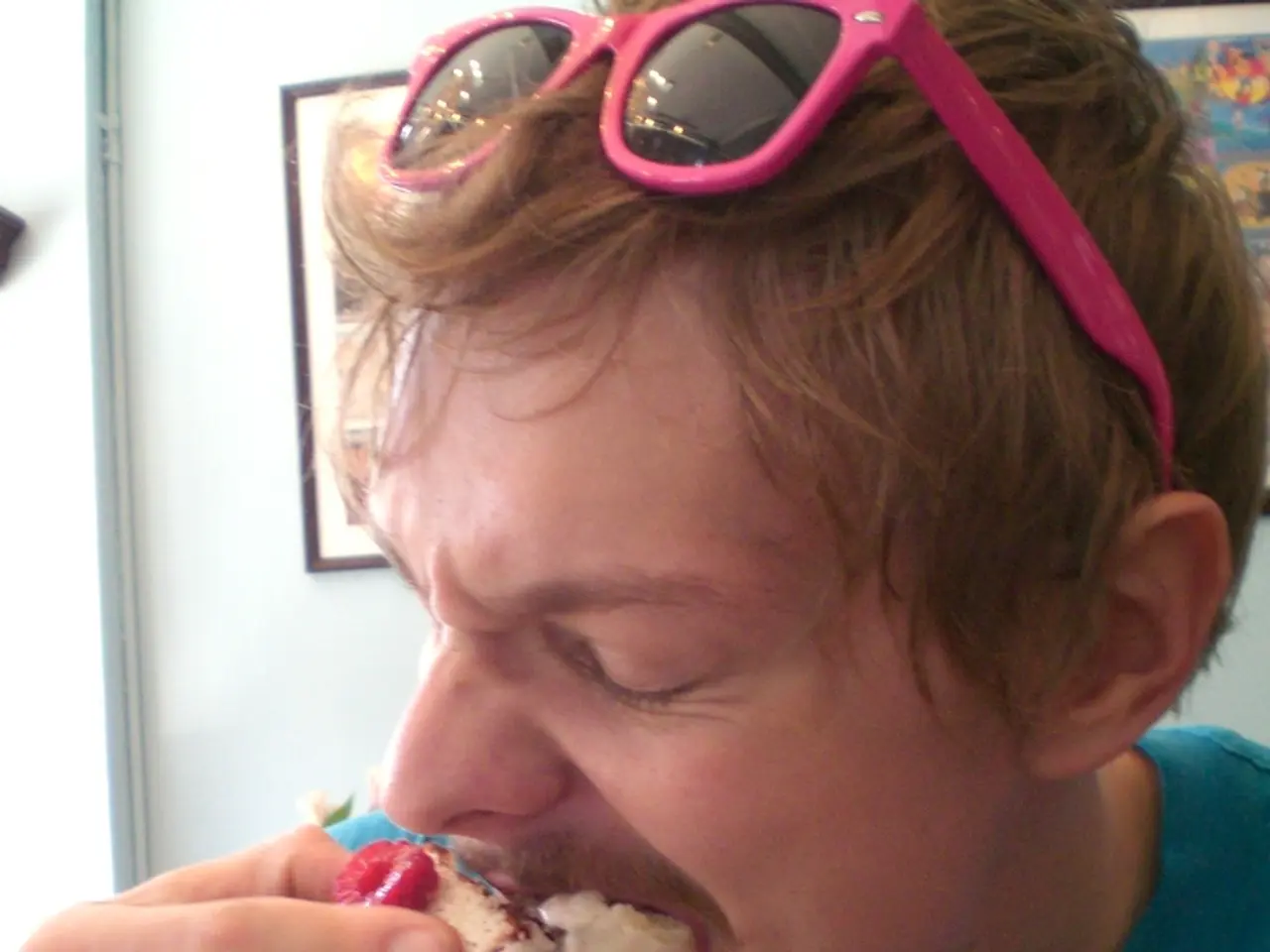Eating-induced Cough: Root Causes, Remedies, and Suggested Foods
A persistent cough after eating can be a concerning symptom, with numerous possible causes. Understanding these causes and taking preventive measures can help manage the issue and ensure timely medical attention when necessary.
1. **Aspiration (Food or Liquid "Going Down the Wrong Pipe")** This occurs when food or drink mistakenly enters the windpipe (trachea) instead of the esophagus. The body’s natural reflex is to cough to clear the airway, leading to coughing fits during or after eating. This is often due to a failure of the throat muscles, vocal cords, or epiglottis to properly direct food into the esophagus.
2. **Gastroesophageal Reflux Disease (GERD)** GERD can cause stomach acid and contents to reflux back into the esophagus and sometimes reach the throat, triggering a chronic cough after meals. This irritation can cause persistent throat discomfort and coughing.
3. **Medication Side Effects** Certain medications, such as ACE inhibitors (used for high blood pressure), can increase sensitivity in the cough reflex by increasing bradykinin levels, causing a tickling sensation and cough, particularly after meals.
4. **Environmental Irritants and Other Conditions** Exposure to smoke, fumes, or dry air, as well as conditions like asthma or chronic bronchitis, can contribute to a persistent cough often worsened by eating or talking.
---
### Preventive Measures
- **Avoid aspiration:** Eat slowly and chew food thoroughly. If swallowing difficulties exist, consult a healthcare professional for evaluation.
- **Manage GERD:** - Identify and avoid trigger foods such as alcohol, caffeine, fatty foods, and spicy foods. - Eat smaller, more frequent meals rather than large meals. - Maintain a healthy weight to reduce abdominal pressure on the stomach. - Avoid eating close to bedtime and elevate the head while sleeping.
- **Hydration and throat care:** - Sip water frequently (every 15-30 minutes) to keep the throat moist and reduce irritation. - Avoid caffeine and alcohol that can dry out the throat. - Consider steam inhalation or using non-medicated throat lozenges to soothe the throat.
- **Avoid irritants:** Stay away from cigarette smoke, strong perfumes, cold/dry air, and other environmental triggers that can exacerbate coughing.
- **Medication review:** If you are taking ACE inhibitors or calcium channel blockers and experience a persistent post-meal cough, discuss alternatives with your doctor.
- **General health measures:** Regular exercise and smoking cessation can improve overall respiratory health and reduce cough frequency.
If coughing after eating is frequent, persistent, or associated with choking or swallowing difficulties, it is important to seek medical evaluation to rule out underlying conditions such as aspiration risk, GERD complications, or other respiratory issues. Other potential causes include asthma, triggered by food additives like sulfites, and acid reflux, which can lead to coughing. A doctor can also help identify the foods causing a reaction due to a food allergy or dysphagia, a condition causing difficulty swallowing.
- Living with a documented food allergy, particularly to specific foods like acidic fruits or nuts, can lead to coughing or other adverse reactions after consumption.
- Advancements in science continue to reveal new insights about health-and-wellness, including recent research on the relationship between fitness-and-exercise and reduced coughing episodes after meals.
- Pneumonia, an inflammation of the lung tissue caused by bacteria, viruses, or fungi, can sometimes present with persistent coughing, especially when combined with phlegm or chest pain.
- In some cases, a persistent cough after eating may be due to unrecognized allergies, like hay fever or pet allergies, which can worsen over time and affect overall respiratory health.
- Nutrition plays a significant role in managing various medical-conditions, such as GERD, food allergies, and other respiratory issues, helping to minimize symptoms like coughing and improve overall health.
- Being aware of the potential causes of a post-meal cough, from allergies and food sensitivities to GERD and inhalation of environmental allergens, can empower individuals to take proactive measures to manage discomfort and promote lasting health and wellness.




